US-orchestrated 'color revolution' returns to Georgia
By Kit Klarenberg
In the second week of March, thousands of people took to the streets of Georgia's capital Tbilisi to protest against a draft law that required NGOs and media organizations in the country to disclose their foreign funding, if it accounted for over 20 percent of their annual income.
While the government ultimately bowed to pressure and dumped the legislation, there is little reason to doubt that a US-orchestrated color revolution, which the draft law was specifically intended to prevent, could be on the cards again in the very near future.
After all, Georgia was an early testing ground for this insidious form of Western "regime change", a model that proved so successful that it was subsequently exported across the world many times over in the initial decades of the 21st century.
Forgotten history
Georgia’s 2003 “Rose Revolution” was the second Western coup in or near the former Soviet sphere following the turn of the millennium. Starting in Serbia in 2000, Tbilisi was followed by Ukraine the next year and Kyrgyzstan in 2005.
Today, these upheavals are framed in the mainstream media as legitimate struggles of “people power” against tyranny. Yet, contemporaneously, the Western media was remarkably candid about the central role played by the National Endowment for Democracy (NED), a US agency that does overtly what the CIA once did covertly, and billionaire investor George Soros, in the overthrow of these governments.
In 1991, the Washington Post reported on how the NED and Soros had helped usher in an era of “spyless coups” carried out via “overt operations.” The organization funded anti-government NGOs, “human rights” groups, political activist collectives, media outlets, trade unions and even educational institutions to destroy Communism in the former Warsaw Pact and USSR.
The 2000 “bulldozer” revolution in Belgrade showed that the NED’s work in Eastern Europe was far from over. In order to dislodge the troublesome socialist Slobodan Milosevic from power, the Endowment applied its resources.
The most prominent recipient of its “overt operations” budget in Serbia was Otpor (meaning "resistance"), a student activist group. With Milosevic gone, it transformed into CANVAS (Center for Applied Nonviolent Action and Strategies), and shifted its crosshairs abroad - the first target being Georgia.
Tbilisi was already thoroughly fertile territory for an NED coup. By 2003, around 4,000 NGOs, most of them foreign-funded were operating in the country, with virtually no restrictions on their activities.
It was in February that year that Soros “began laying the brickwork for the toppling of Georgian President Eduard Shevardnadze,” according to a report in Canada’s Globe and Mail.
That month, Soros’ Open Society Foundation funded a visit to Belgrade for Georgian activist Giga Bokeria, founder of the NED- and Soros-funded Liberty Institute, to Serbia to meet with members of Otpor and learn how they used street demonstrations and other passive forms of resistance to undermine Milosevic.
Over the summer, Otpor representatives were dispatched, again on Soros’ dime, to Tbilisi for more intensive training. They ran three-day courses, teaching over 1,000 students how to stage a peaceful revolution.
These students formed an Otpor of their own – Kmara (meaning "enough”) - and adopted its logos and branding. Soros gifted the group an extraordinary $350,000 in startup cash, having funded the opposition TV news network Rustavi-2, and the newspaper 24 Hours, for years.
The former was hated by the government, not least due to its production of a cartoon called Our Yard, in which an animated president was portrayed as a crooked double dealer.
As the 2003 Georgian parliamentary elections neared, Soros and NED helped Kmara develop TV adverts, flyers, propaganda pamphlets, and more. He also bankrolled the opposition National Movement party, led by his friend Mikhail Saakashvili, a New York-educated lawyer.
In 2002, Soros personally presented him with his foundation’s Open Society Award.
In the wake of the 2003 election, which was officially won by a combination of parties supporting President Shevardnadze, reports of electoral fraud and voter intimidation were broadcast by the Soros-funded Rustavi-2, along with NED-funded polling pointing to a very different picture of public support.
This triggered nationwide protests lasting several weeks, led by Kmara. The group used their Soros funding to bus in demonstrators from all over the country, and set up loudspeakers and a giant television screen outside Tbilisi’s parliament building – which broadcast Rustavi-2.
In the background, the World Bank and International Monetary Fund suspended all aid for Georgia.
Due to mounting pressure, and the risk of peaceful protests becoming extremely violent, Shevardnadze resigned on November 24.
A re-run election in January 2004 saw Saakashvili prevail. He immediately set about a radical program of reforms to Westernize the country, to the extent of tearing down Soviet-era monuments.
Double standards
Modern retellings of the Rose Revolution typically contend that it was explicitly “anti-Russian” in nature. Yet, Shevardnadze was aggressively pro-Western, and relations between his government and Moscow were poor throughout his eight-year-long presidency.
Tensions over the breakaway regions of South Ossetia and Abkhazia, which Saakashvili invaded in 2008, remained constantly high, and he was accused by the Kremlin of sheltering Chechen guerrilla fighters.
Shevardnadze’s relationship with the US was by contrast warm and intensive, with Georgia becoming the second-largest recipient of Washington’s foreign and military aid, behind Israel, on his watch.
He signed a strategic partnership with NATO, declared an ambition to join the European Union, and opened up his country to large-scale privatization and foreign exploitation. In many ways, he was the West’s man – and was even at one point on good terms with Soros, having known him since the 1980s.
When the billionaire visited Tbilisi for the first time in 2000 to set up Open Society Georgia, it was on Shevardnadze’s explicit invitation. On that trip he became acquainted with Saakashvili, then the country’s justice minister, for the first time.
Less than a year later, Saakashvili quit his post and became a vicious opposition critic of the government.
Clearly, Shevardnadze wasn’t suitably pro-Western – or anti-Russian – enough for Soros or the NED, and it was felt Saakashvili would serve Washington’s interests more effectively, and subserviently.
This underlines the danger “overt operations” pose even to compliant governments. In the event of a successful coup, shadow funding of opposition NGOs and media outlets continues, ensuring unrest can be stirred at a moment’s notice should a Western-backed administration dare not act as required.
This is precisely what was seen recently on the streets of Tbilisi. A 2022 review of NED funding in Georgia shows the Endowment continues to support so-called “pro-democracy” programs there, costing millions. Many of the recipient organizations, such as the Shame Movement, were at the forefront of recent demonstrations.
Criticism of the draft “foreign agent” law from US officials was venomous, with US State Department spokesperson Ned Price warning elected lawmakers that voting for the draft legislation “would be responsible for potentially jeopardizing Georgia’s Euro-Atlantic future.”
The irony is that it would be illegal for a Georgian equivalent of the NED to conduct comparable operations in Washington.
In an even more perverse twist, the very same figures in Brussels who cautioned that Georgia’s adoption of this legislation would disqualify it from European Union membership are now pushing a bloc-wide law that is essentially identical.
Under its auspices, commercial and non-profit entities across member states would be compelled to disclose any funding received from non-EU countries.
Trojan horses
Georgian Dream, the political party leading Tbilisi’s coalition government, no doubt collectively breathed a literal and proverbial sigh of relief when the protests subsided, following its capitulation. However, the regime change cost is evidently far from clear.
Mere days after protesters vacated the area surrounding Georgia’s parliament, Lithuanian MEP Andrius Kubilius told local news outlet Georgia Today that the country’s population had to choose between Georgia Dream in government, or EU membership - citizens couldn’t have both.
One might reasonably ask why a member of the European Parliament representing an entirely separate country is effectively dictating to Georgians who they can and can’t elect.
Kubilius has taken a markedly keen interest in Tbilisi’s internal affairs in recent years, for example speaking at EU events on the country’s future, which were coincidentally funded by NED.
Georgia Today’s own funding sources are somewhat opaque, although the publication may well have been impacted by the foreign agent law if it was implemented. Its former editor Nana Sajaia is an NED fellow, while simultaneously serving as a producer at the far-right Fox News’ Washington DC bureau.
Georgia Dream clearly had good reason to expose the foreign hand financing and guiding the activities of so many organizations on its soil. Yet, recent events demonstrate that NED needn’t have a physical presence in a country to influence events there.
In 2020, Minsk was rocked by incendiary anti-establishment unrest. A year later, the Endowment’s senior staff were tricked by Russian pranksters posing as Belarusian opposition activists into admitting their organization - which is proscribed by the government of Alexander Lukashenko - was behind the protests.
The NED is likewise banned in Iran. Yet, the Endowment bankrolls a variety of exile organizations hell-bent on destroying the Islamic Republic from afar, to the tune of millions annually.
Not all recipients are advertised, but entities such as the Abdorrahman Boroumand Center confirmed to receive NED "regime change" coin, were at the forefront of recent riots in Tehran and other cities.
With Ukraine perilously close to being comprehensively routed in its war with Russia, the West’s desire, if not need, to open a second front in the conflict grows daily. And in that context, installing a compliant government in Georgia becomes a literal matter of life and death from the NED’s perspective.
Kit Klarenberg is an investigative journalist, exploring the role of intelligence services in shaping politics and perceptions.
(The views expressed in this piece do not necessarily reflect those of Press TV.)
Palestinian resistance fighters hit Israeli Merkava 4 tanks
VIDEO | UK police brutal assault on Muslim family sparks outrage, protests
Hamas: Death of leader in Israeli jail amounts to murder
EU sends €1.5 billion to Ukraine from frozen Russian assets
VIDEO | Millions of Yemenis rally for Gaza, call for more anti-Israel operations
UN chief calls for Olympic truce as games begin in Paris
Paris Olympics begin as sports world reeling from loss of 400 Palestinian athletes in Gaza war
Iran warns ‘sworn enemies’, says sidekicks of US, Israel ‘displaced’ with bloody hands


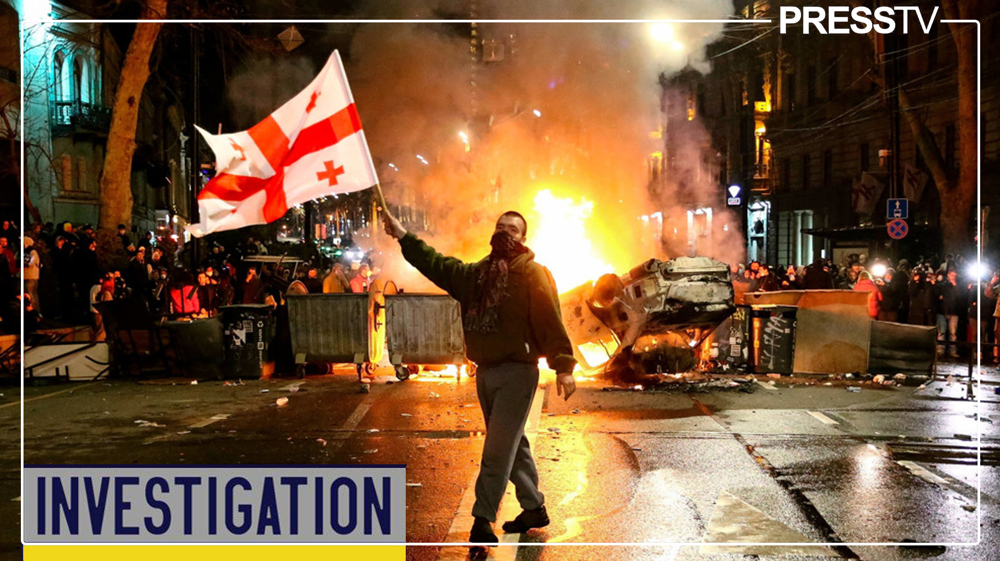
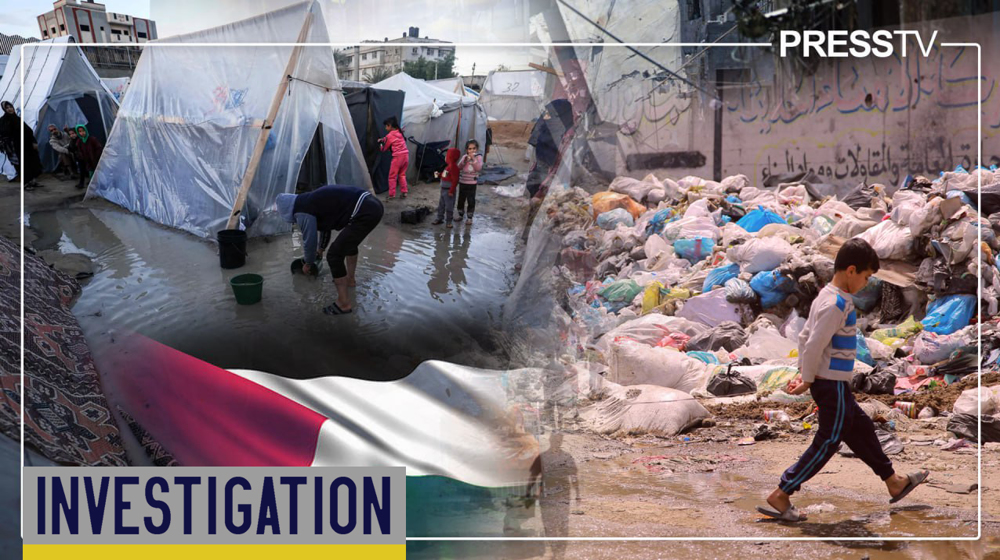

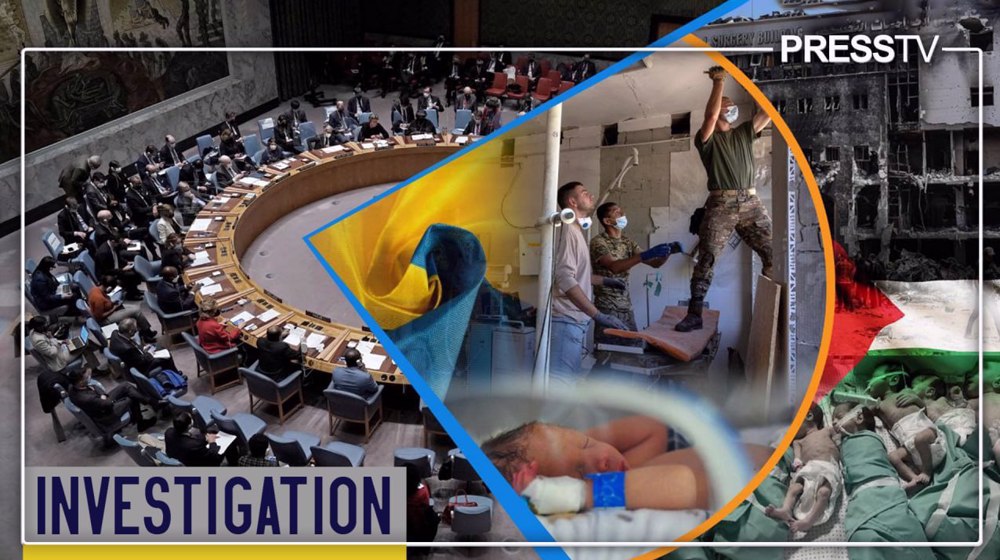



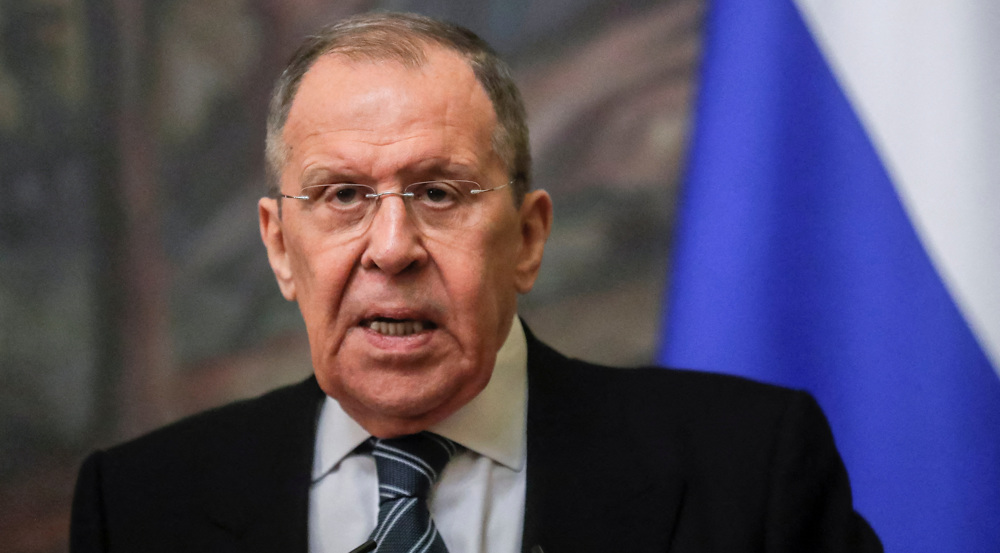
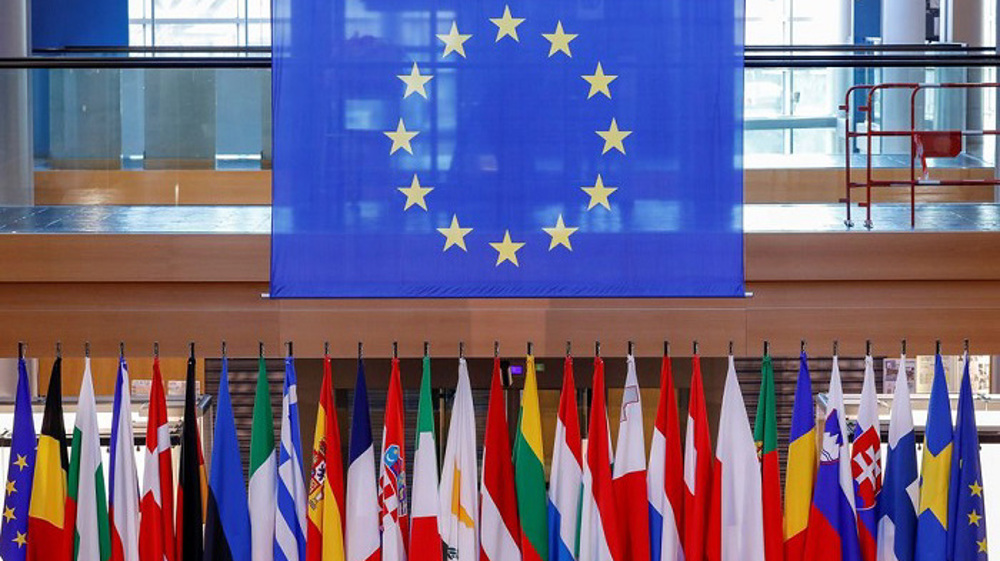
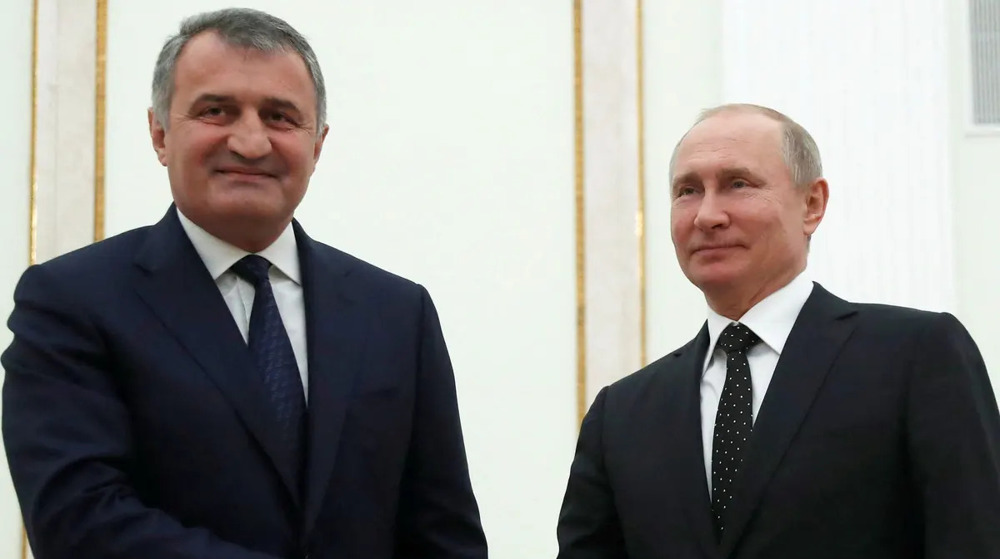
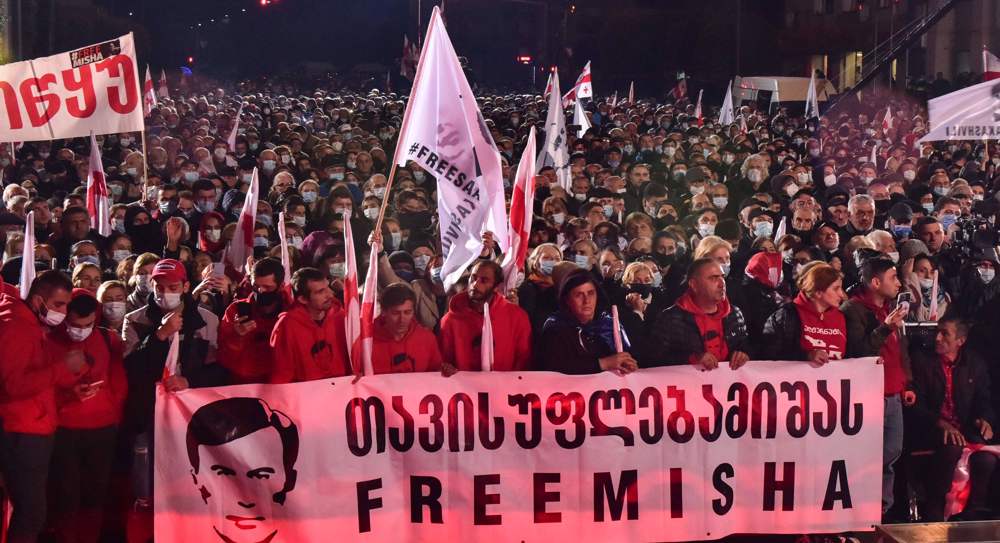
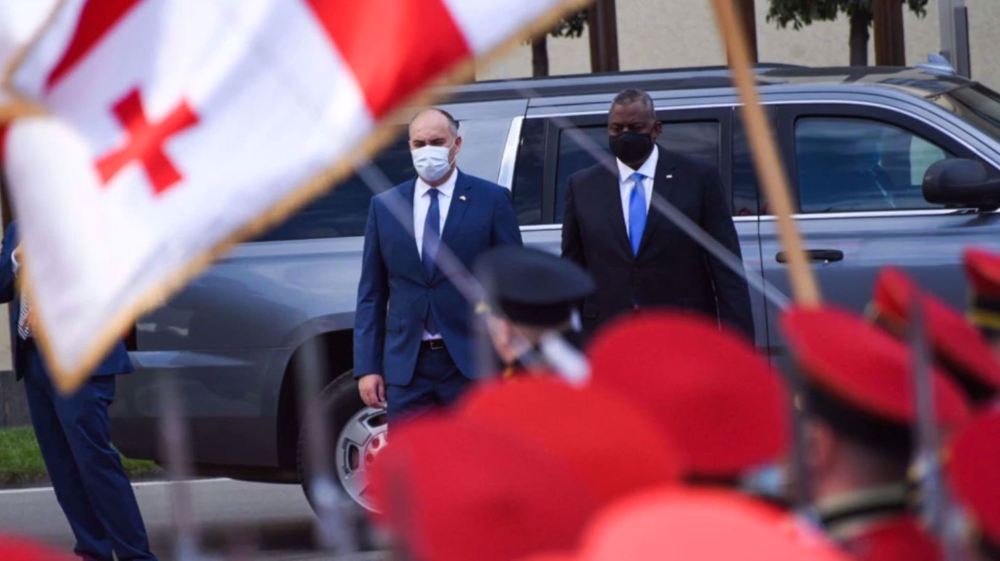

 This makes it easy to access the Press TV website
This makes it easy to access the Press TV website